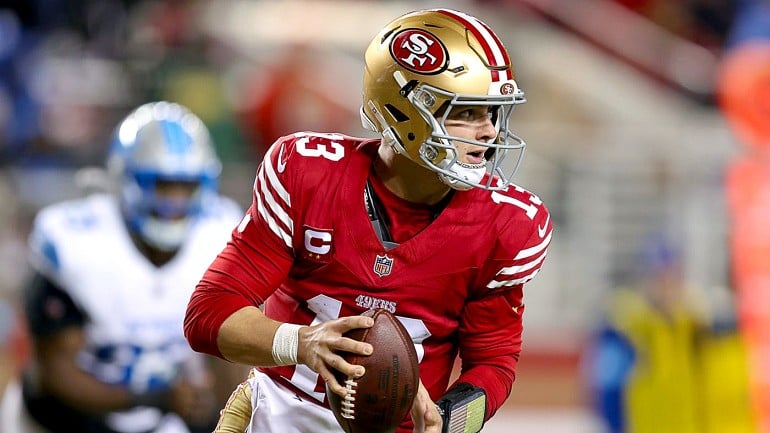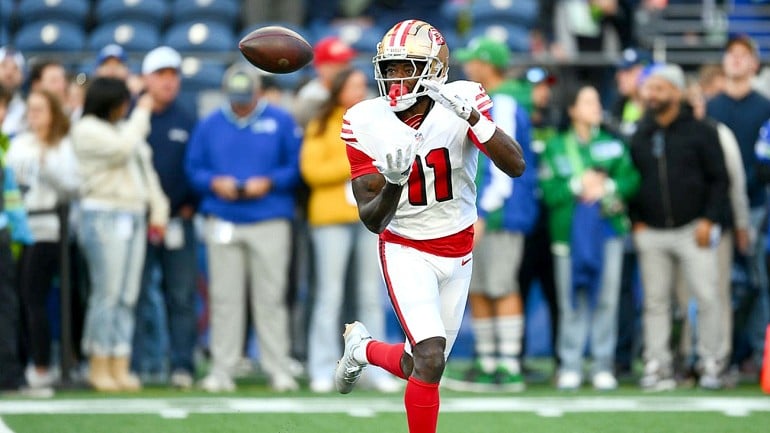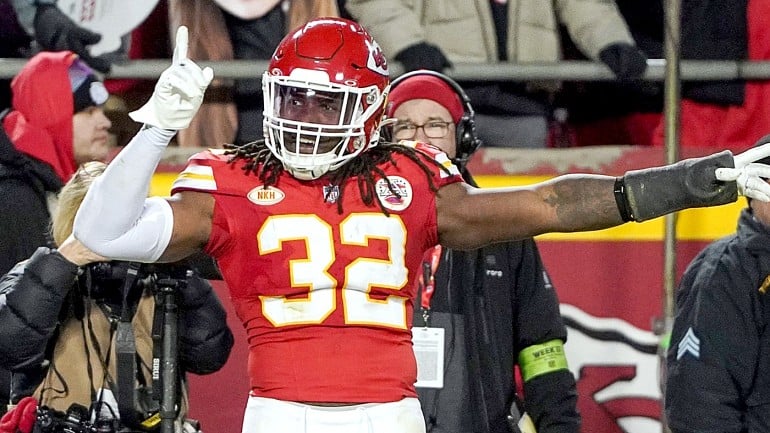Astonishment permeated the war room in Santa Clara as the Oakland Raiders selected Maryland wide receiver Darius Heyward-Bay with the seventh selection in the 2009 NFL Draft. Jacksonville and Green Bay followed with coveted offensive tackle Eugene Monroe and defensive tackle B.J. Raji respectively. As the first round progressed, the 49ers realized that Texas Tech stud wide receiver Michael Crabtree remained on the board.
The San Francisco brass had the draft's most coveted wide receiver in their sights, and secured Crabtree as the 10th pick of the draft. General Manager Scot McCloughan was overjoyed at the opportunity to draft the best wide receiver available, despite Crabtree's inability to run at the Scouting Combine. There were lingering questions regarding his overall speed. To be honest I was stunned to think that we would've selected a wide receiver with our first pick in this year's draft, especially due to our dire need of offensive and defensive tackles and a certified pass rusher.
However there is no doubt that the former Texas Tech player commands respect for his off the charts two-year career as the schools most prolific receiver. He caught 231 passes for 3,127 yards and 41 touchdowns in the Texas Tech Red Raider's notorious spread offense. By the end of the 2008 collegiate season he was considered the top receiver in the nation. On top of these statistics, he won the Fred Biletnikoff Award as the nation's best collegiate wide receiver after each of his two seasons.
Some NFL analysts agree that Crabtree was snubbed by NFL teams because he did not perform for scouts (due to a stress fracture in his foot that was surgically repaired in early March). Therefore teams had no 40-yard dash time, no short shuttle and no vertical leap to consider. Concerns over the fracture made some clubs a bit uneasy. Despite the stress fracture, GM McCloughan did not believe someone of his caliber would be sitting there at Number 10. In fact Scot compared Crabtree as the closest thing to Arizona Cardinal Anquan Boldin he'd ever seen in college football. Crabtree's attitude exudes complete self-confidence in his abilities as a player. He is enthusiastic about being a 49er, especially since he grew up idolizing both the Dallas Cowboys and San Francisco 49ers. He admitted that it would be hard to fill the shoes of some of the greatest San Francisco players who came before him.
Mike Singletary received some advice from legendary defensive back Deion Sanders. Sanders found that Michael Crabtree is a focused and self-confident player with a set of goals to accomplish. Further, Singletary and others on his coaching staff watched endless game film on Crabtree as Texas Tech's most explosive offensive weapon with 231 catches, 41 touchdowns and averaged 13.5 yards per catch.
For six consecutive losing seasons the San Francisco 49ers have been tormented by the lack of offensive ingenuity and the ability to find a competent pass rusher. Certainly there was a choice when they went on the clock in the first round of the Draft, but like a kid at an ice cream parlor the yearning for something exciting in ways of explosive offense appealed to the 49er front office.
The Oakland Raiders chose Maryland's Darrius Heyward-Bey based upon his pure speed but relatively substandard production statistics. ESPN's Mel Kiper Jr. weighed in on the Raiders decision to pass up Michael Crabtree as utterly "ludicrous," especially considering that Heyward-Bey had not even caught a pass in a few games he played for Maryland. Michael Crabtree will be very eager to prove his worth in training camp and beyond, proving Kiper right for giving the Raiders an "F" grade for their first draft pick.
Another bright side is the fact that veteran wide receiver Isaac Bruce will be the mentor for this young athlete with enormous aspirations. Still even more important, other wide receivers currently on the 49er roster will be in place to take some of the immediate pressure off from Crabtree as young athletes like Jason Hill and Josh Morgan add to the depth at that position.
There is no question that the front office and the coaching staff of the 49ers look to Michael Crabtree as becoming a legitimate offensive weapon in the likenesses of a Terrell Owens and or Jerry Rice. The first pick of the draft comes with that type of expectation. As a child growing up in Dallas, Michael always took time to practice catching balls from his older brother Keiron Stevenson. The balls were thrown so hard (Keion being six-years older) that Michael often suffered from a sore chest. This made Michael more inclined to catch the ball with hands, and today he practices catching tennis balls with one or two hands to practice following its trajectory. It is because of Michael's hands the 49ers are excited to see him perform out on the field.
Below are some statistics courtesy of Sporting News Draft 2009 on Michael Crabtree. They confirm for me that he is an exceptional athlete that provides the organization with offensive explosiveness.
Hands: He caught more than 94% of all balls thrown his way. He can pluck passes that are off target and shows concentration and toughness heading into heavy traffic on quick-hitting slant routes. He is also able to catch high passes along the sideline and then tap his feet down in bounds.
Patterns: He has the agility to make sharp cuts and a good burst to get separation. Does well with getting body position on the defender in order to cut him off and shed him from the ball. He does, however, need to make all his routes look the same until he cuts.
Run after the catch: Doesn't have top-end speed to run away from the defense and take plays to the distance. He is a big and strong receiver who can run through arm tackles and gains yards after contact. Michael has some experience returning kickoffs as well.
Release: Displays solid footwork and snap anticipation. Lacks a bit of explosiveness off the ball into his route. He uses his hands, size, and strength well to fight through and release quickly while in a jam situation. Does a solid job of defending the jam overall.
Blocking: He possesses the size and strength to be a dominant blocker. He needs to give better overall effort and become more consistent.
Bottom line: Crabtree is a tall, strong receiver with deceptive athleticism who knows how to get himself open. He catches passes in traffic without hesitation, not flinching at the defenses and holding on to the ball after he takes a hard shot. He has everything desirable of a promising collegiate wide receiver that a team needs.
I say a big thank-you to Oakland Raiders owner Al Davis for not taking Michael Crabtree and I am as anxious as all of you are to see him perform inside training camp. The last time the 49ers picked a wide receiver at No. 10 in the first round of the draft was J.J. Stokes in 1995. The former UCLA wide receiver turned out to be a bust, despite then head coach George Seifert saying he was comparable to Dallas wide receiver Michael Irvin.
Every draft is an inexact science. But like others, I am betting Michael Crabtree proves our skeptics wrong and shows that Al Davis left us with a pot of gold at the end of the draft rainbow.
Sources of Information: Mercury News.com, SF Gate.com, Inside Bay Area.com, NFL.com and my own personal analysis and opinion.



